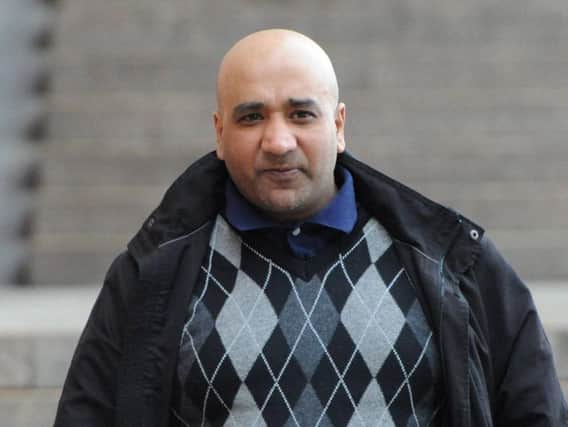Sunderland takeaway boss 'used alcoholics and drug addicts as slaves' and 'fed them on leftovers'


Hargit Bariana's tenants at a multi-occupancy maisonette paid their rent through housing benefit, but were also expected to work for him for free.
Newcastle Crown Court heard some of the men, who were mostly drink or alcohol-dependent, would be threatened or beaten if they did not comply.
Advertisement
Hide AdAdvertisement
Hide AdBariana, who was known as Harry, was owner of Valentino's takeaway in Olive Street, Sunderland, and Antonio's chip shop in Blyth.
The 46-year-old would expect his tenants to prepare food and hand out leaflets for the outlets, but they were also forced into more heavy work such as clearing drains, jurors heard.
Bariana, of North Farm Cottages, Blyth, denies eight offences of requiring another person to perform forced or compulsory labour, one of robbery of cash from one of his alleged victims, and one of being concerned in the supply of diazepam
His co-accused, Denise Lillico, 51, of Dalton Crescent, Byker, Newcastle, also denies being concerned in the supply of the class C drug.
Advertisement
Hide AdAdvertisement
Hide AdProsecutor Christopher Knox told the court the tenants, who lived in a multi-occupancy house in Blyth, were "exploited" by Bariana, who was their landlord.
He said: "The prosecution case is Bariana was a landlord and owner of at least two retail food businesses, and exploited people he knew were vulnerable, in all cases because they were either homeless, near-homeless or threatened with homelessness, and in most cases had one or other problems with drugs and/or alcohol.
"They were, in particular terms, people at a low ebb, they were able, easily, to be bullied, coerced, forced to do work.
"They were exploited in terms of coercion of one sort or another, bullied, coerced and forced to do work in non-standard circumstances.
Advertisement
Hide AdAdvertisement
Hide Ad"They weren't people who had unions or conditions of work or anything like that."
Mr Knox said the men were "right on the bottom" and "needed the roof he was providing to the extent they could be prevailed upon to do other things for him".
Mr Knox added: "They could be pushed into doing work. He did, in some cases, assault them, beat them."
The men would be given handouts of drink and drugs, which they were then told they needed to work to pay for.
Advertisement
Hide AdAdvertisement
Hide AdHe said the men were sometimes given "food at the end of the day that was left over" at the take-away.
The court heard one victim "literally ran away" from the situation he found himself in, and another told his probation officer what was happening to him, so received local authority help.
Bariana claims all allegations against him are "untrue".
The trial continues.